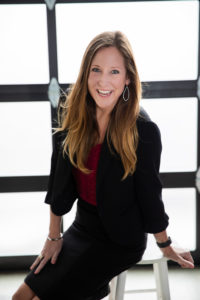“They encourage people to go from training wheels to driving motorcycles.”
(Quote from the best article I have read on this company yet.)
So, this is the business model and mission of Robinhood – and, well, it seems to be “working” –
BUT… Is it ethical?
Here’s what I think: If a financial services firm intentionally designed an unethical business model, it couldn’t do any better.
The financial services industry has a questionable past of putting the interests of traders and managers before its customer investors. Fortunately, a multitude of academic studies have shown for decades that a low fee, diverse, buy and hold strategy beats a short-term trading strategy when it comes to investing. Vanguard, and the like, haven’t gotten so dominant by accident. And the world of investors have finally seen the light (in spite of ongoing misleading financial services marketing) that low fees and diversified investing (with little or no trading) wins in the long-term.
And then along comes Robinhood, with a no fee/no minimums pitch to entice inexperienced investors
“…with the Silicon Valley playbook of behavioral nudges and push notifications.”
…to enter the high-frequency trading world, where only the best and the brightest (and sometimes unethical) make money. Industry data shows Robinhood platform investors “trade the riskiest products and at the fastest pace” – a tried and true strategy to enrich financial services managers and traders (who are paid based on the volume of trades) at the expense of investors.
So, back to my original question – is the Robinhood business model ethical? Does Robinhood really serve the best interests of its customers? Or just their OWN best interest?
Let’s check it out –
In my ethics training provided to all types of organizations, their leaders, and professionals, I stress the importance of having “Ethical Anchors” – anchors that provide the basis for decision making when it comes to ethical issues.
So, what are some of the “Ethical Anchors” and how does Robinhood measure up?
First there is the “Ethics Check” from the book, The Power of Ethical Management (By Kenneth Blanchard and Norman Vincent Peale). The “Check” asks three pretty simple questions:
- Is it legal?
- Is the strategy balanced… fair to all stakeholders… is it win-win?
- How will you feel about yourself after executing… can you look yourself in the mirror?
After putting Robinhood through this test, I would say the strategy may (or may not be?) legal, but it surely isn’t fair to all stakeholders and I would have a damn hard time looking myself in the mirror at the end of the day knowing my customers are gambling with their lives, and, in at least one instance, taking their own life because of my organization’s business model.
And further evidence – when you have to install bullet proof glass in the windows of the corporate office to protect your employees (as Robinhood reportedly has), you probably do not pass the “Ethics Check.” (Flashback to Theranos… just watch the trailer to the HBO documentary “The Inventor: Out for Blood in Silicon Valley” to hear about their bullet proof windows and unethical behavior. Seems they may go hand and hand…)
And what about this second “Ethical Anchor”: Treat others as you want to be treated… better known as the “Golden Rule.” (Read, There’s No Such Thing as “Business” Ethics: There’s Only ONE Rule for Making Decisions, by John C. Maxwell.)
Leaders at Robinhood… Would you encourage your not-so-investment-savvy mother, grandfather, children to engage in high-frequency trading of risky investment products as an investment strategy? Or to “gamble” with their life savings? I think we all know the answer – and to me, Robinhood clearly does not pass the “Golden Rule” test.
“In June, the actor Ashton Kutcher, who has invested in Robinhood, attended one of the company’s weekly staff meetings on Zoom and celebrated its success by comparing it to gambling websites, said three people who were on the call.”
The Bottom Line
Ethics is not a gamble. Ethical organizations don’t purposely “steal” by using seemingly unvetted technology, unscrupulous social media tactics, and preying on the inexperience of investors.
Ethics is about reasoning and making judgements about what is good and the right thing to do. And ethical organizations spend time on these judgements all while looking out for the true interests of their customers.
Robinhood’s strategy is the antithesis of the “good and right thing to do” for the financial services industry and its customers. An ethical financial services company does just the opposite – encourages fully informed, responsible investing through a low cost, diversified, no trade, long-term strategy.
Perhaps Robinhood leaders need this reminder from Potter Stewart, Former Associate Justice of the Supreme Court of the United States:
“Ethics is knowing the difference between what you have a right to do and what is right to do.”
Need Ethics CPE? Book your virtual 1-hour, 2-hour, or 4-hour Ethics training with Jo today! Email Jo@AuditConsultingEducation.com.
Amanda “Jo” Erven, CPA, CIA, CFE, is the President and Founder of Audit. Consulting. Education. LLC. After a successful career in external/internal audit and accounting, Jo is now an active Internal Audit Strategist, Management Consultant, Higher Education Professor, Author, and Trainer/Speaker, providing Continuing Professional Education (CPE) hours, live and virtually, to organizations across the globe. Jo’s motto says the most about her personal and professional outlook: “Good things come to those who wait… but don’t. You deserve better than good.” Every one of her books and presentations focuses on that proactive stance, and how we can immediately connect our actions to our values.


